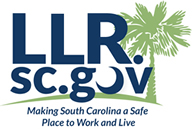Hello REALTORS®,
During the last year, we have been fortunate to have some great speakers on the economic conditions and forecasts about the future. The hot question recently is when will interest rates go down? We had the perfect speaker for that topic: Dr. Laura Ullrich, Senior Regional Economist at the Federal Reserve Bank of Richmond. She talked about economic conditions in the Fed’s fifth district (DC, Maryland, Virginia, West Virginia, North Carolina, and South Carolina). In this week’s Watchdog Report, I am sharing a summary of Dr. Ullrich’s comments along with her slide presentation, which you can download here.
The two most important points that Ullrich made were:
- Of all the forecasts of a recession during the last year, the Fed was never one of those predicting a recession.
- Of all the forecasts of multiple and rapid decreases in interest rates this year, the Fed is not one of those saying rates will go down soon, or fast.
The primary reason rates won’t fall soon, or quickly, is that while inflation has dropped back to a much more acceptable 3%, it still isn’t at the Fed’s preferred target of 2%. In addition, the rate at which inflation is falling has slowed and it may be a couple of years before inflation hits 2%.
The Fed’s primary concern about reducing interest rates too soon is that inflation will come roaring back. That has happened before, and they don’t want to repeat that mistake. In addition, GDP, a measure of economic growth, was 3% in 2023 and forecasted to remain at 1.5% to 2% in 2024 and 2025, so the economy is still growing even with elevated interest rates. However, Ullrich said that global supply chain issues continue to restrain GDP growth.
Housing is an area of the economy that Ullrich commented on extensively. Her bottom line is that, since 2007, housing production has been well below the average for 1990 to 1999. She said that has created a significant undersupply of housing that is contributing to high housing prices and inflation. Housing is 30% of the Fed’s measure of inflation. As a result, she reported that there isn’t an area of the Fed’s fifth district that isn’t housing cost burdened.
Regarding jobs, she said that South Carolina, and particularly Anderson County, are bright spots in the region. South Carolina employment has nearly recovered to pre-COVID levels, and Anderson County employment has fully recovered. And every region of the state, except Sumter, exceeds the national average for employment growth.
But until inflation returns to 2%, which the Fed governor’s project will not happen until 2027, the Fed’s benchmark interest rate will be slow to fall. She presented a slide that forecasts two to three .25% reductions in the fed funds rate in 2024. The current fed funds rate is 5.25%-5.5%.
You can download Ullrich’s presentation here.
Elections Update
It’s election year. There will be three opportunities to vote before summer:
- Republican Presidential Preference Primary is this Saturday, February 24. Polls are open 7 a.m. until 7 p.m., however some polling places have been consolidated so check with the county elections offices for polling places:
- Anderson City Council district 6, is April 2.
- Party primary races for Congress, General Assembly (House and Senate), County Councils, and other local races is June 11.
Early voting opens in South Carolina two weeks before each election, and one week before a runoff election. You can find the polling places for early voting at the links above.
Support RPAC
RPAC is an important element of your Realtors Association’s advocacy program. I encourage you to support RPAC and we make it easy to do so—we include a voluntary RPAC contribution on your annual dues renewal. Simply pay it and you have support RPAC. If you want to do more, it’s easy.
Michael Dey, Director of Government Affairs



